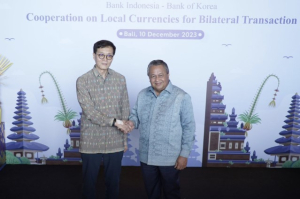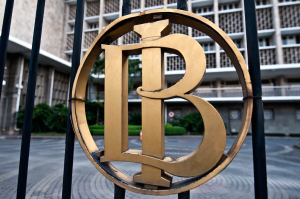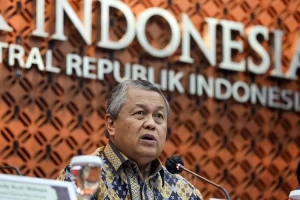BI-ASEAN Central Banks complete phase 3 blueprint of Project Nexus
The Indonesian Central Bank (BI), along with the central banks of four other ASEAN countries, has completed the Phase 3 blueprint of Project Nexus, aimed at enabling participating countries to achieve faster and smoother domestic instant payment interconnections.
Project Nexus is an initiative by the BIS Innovation Hub designed to enhance cross-border payments by connecting various domestic instant payment systems (IPS) globally.
Alongside BI, the central banks involved in this project include Bank Negara Malaysia, Bangko Sentral ng Pilipinas, Monetary Authority of Singapore, and Bank of Thailand.
This marks the first BIS Innovation Hub payment project moving towards implementation. It serves as an advisor for Project Nexus, preparing the operational scheme and opening opportunities for new global participants.
Nexus is designed to standardize connectivity methods so that domestic IPS can link with each other.
With Nexus standardization, an operator in one country needs only to connect once to Nexus, eliminating the need for separate connections with each desired country.
This setup allows IPS of participating countries to interconnect through a single connection.
BIS General Manager, Agustín Carstens, expressed optimism about developing Project Nexus from concept to reality.
He noted that this is BIS Innovation Hub's first project with central banks and IPS operators moving towards implementation.
Once implemented, this project will enhance cross-border payments in alignment with the G20's cross-border payment programs and BIS's mission to support central banks and improve the financial system's function through technology.
"With the initial wave of participating countries, Nexus has the potential to connect markets with 1.7 billion people worldwide, allowing them to make instant payments to each other easily and affordably," Carstens said.
BI Governor Perry Warjiyo emphasized that Nexus aims to achieve cross-border payments based on a robust, inclusive policy framework with effective risk management.
This vision aligns with the broader public interest to provide efficient and affordable cross-border payment solutions for individuals and businesses worldwide, thereby enhancing global economic participation.
By prioritizing these principles, Perry said, cross-border payment systems will become smoother and more secure, fostering economic growth, financial inclusion, and sustainable development.
The conclusions and key points of Phase 3 of Project Nexus are detailed in the report available at BIS's official website. The report includes the scheme rulebook, technical implementation guide, and ISO 20022 message format specifications, available upon request by central banks.
Next, Project Nexus will advance to Phase 4, focusing on establishing a new entity, the Nexus Scheme Organization (NSO), responsible for managing the Nexus scheme and continuing the mission to achieve instant cross-border payments.
BI will continue its participation as an Observer, monitoring the project's development.
Tag
Already have an account? Sign In
-
Start reading
Freemium
-
Monthly Subscription
30% OFF$26.03
$37.19/MonthCancel anytime
This offer is open to all new subscribers!
Subscribe now -
Yearly Subscription
33% OFF$228.13
$340.5/YearCancel anytime
This offer is open to all new subscribers!
Subscribe now






